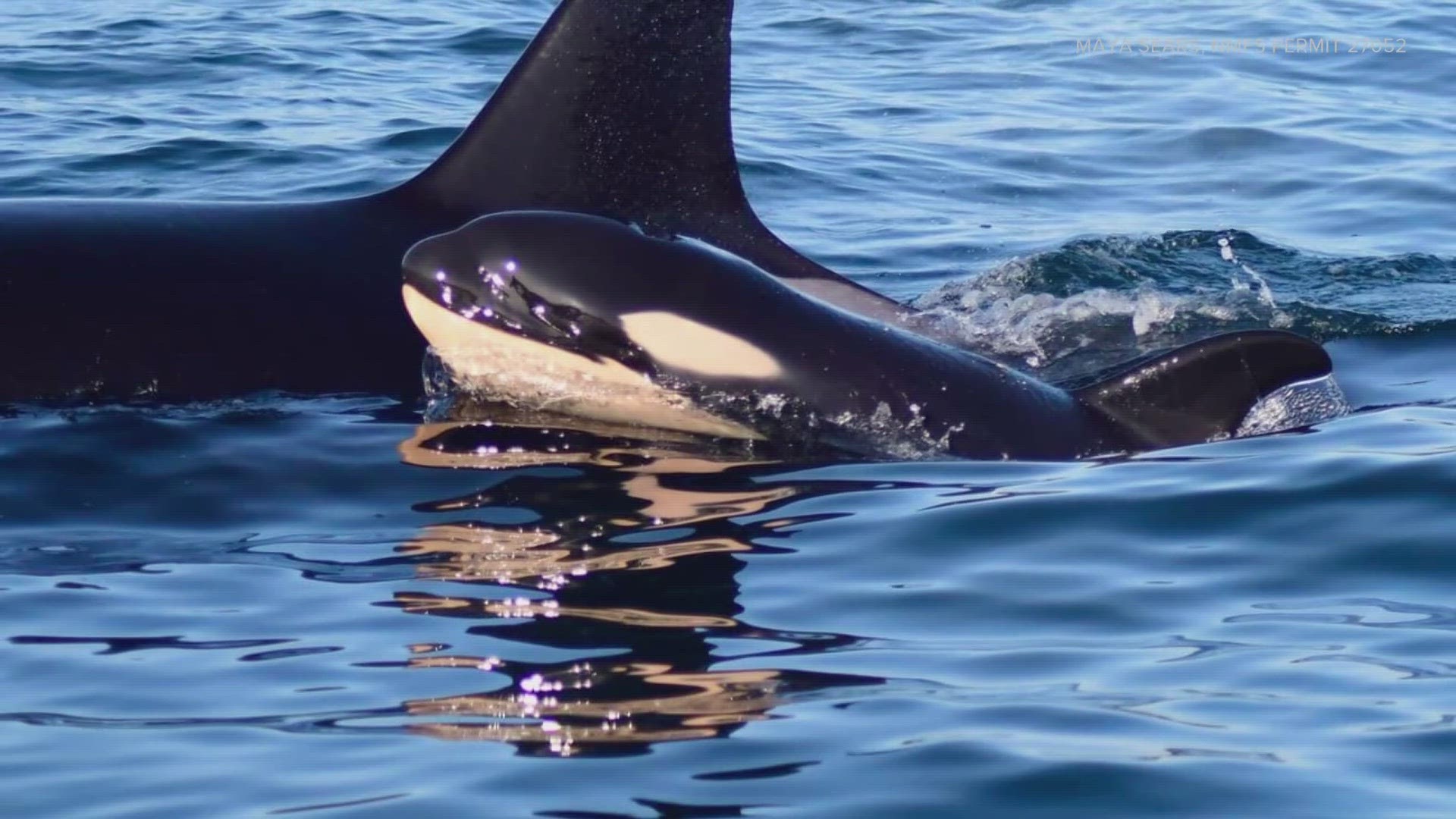WASHINGTON, USA — Washington whale researchers believe a Southern Resident orca calf with J Pod has died.
According to the Center for Whale Research, the 1-month-old calf, J60, was missing from the researchers' recent encounter. They identified every other J Pod member during the Jan. 27 encounter in the San Juan Channel, which led them to believe the calf had died.
The research team said it would be "extremely unlikely" for an orca that young to have been on its own for the entirety of the encounter. The team located two potential mothers of the calf, J40 and J46, during the encounter. Neither of them had a calf traveling with them.
"It's really, really unusual and we don't really observe it at all, to have killer whale calves- especially as young as J60 was, about a month old- swimming away from not just their mother, but from any other pod member for any length of time," said Dr. Michael Weiss, research director for the Center for Whale Research.
The Center said the mortality rate for Southern Resident orcas is very high.
"This is due both to the generally poor nutritional status of Southern Residents and the transfer of toxins from mother to calf during gestation and lactation," the researchers wrote in the release.
The Center for Whale Research said protocols won't allow an official determination until they've seen a whale missing from the pod three times, but members do believe the calf is dead.
The number of Southern Resident orcas has been fluctuating, but a main concern is the lack of reproducing females.
"While the number of whales is important- and it's the number we track- it's also important to look at capacity of the population and I think what this demonstrates, J60 going missing demonstrates, is we have lots of females in the population who are the age where they should be having lots of offspring successfully and raising them to maturity and it's just not happening," Weiss said.
In November of 2023, whale experts with Orca Conservancy said there had been a slight increase in orca sightings year over year. Experts say this is due to an increase in killer whales taking advantage of the seal and sea lion population in Puget Sound and a rise in social media pages notifying people of sightings.
According to NOAA, all three Southern Resident pods - J, K and L - were reduced from 1965-1975. The population was 71 in 1974.
The population peaked at 97 in 1996 before declining to 79 in 2001.
The population remains in the 70s, according to NOAA.
Researchers say restoring Chinook salmon availability is key.
"I think it's important to not let the highs be too high or lows be too low," said Monika Wieland Shields of the Orca Behavior Institute. "The loss of J60 is tragic, but we know we're going to lose some of the young calves. We just want to make sure we're giving all the pregnant mothers a chance to feed enough, to carry these pregnancies to successful births and that there's enough food for these little ones to grow up and be healthy."
Download our free KING 5 app to stay up-to-date on news stories from across western Washington.

